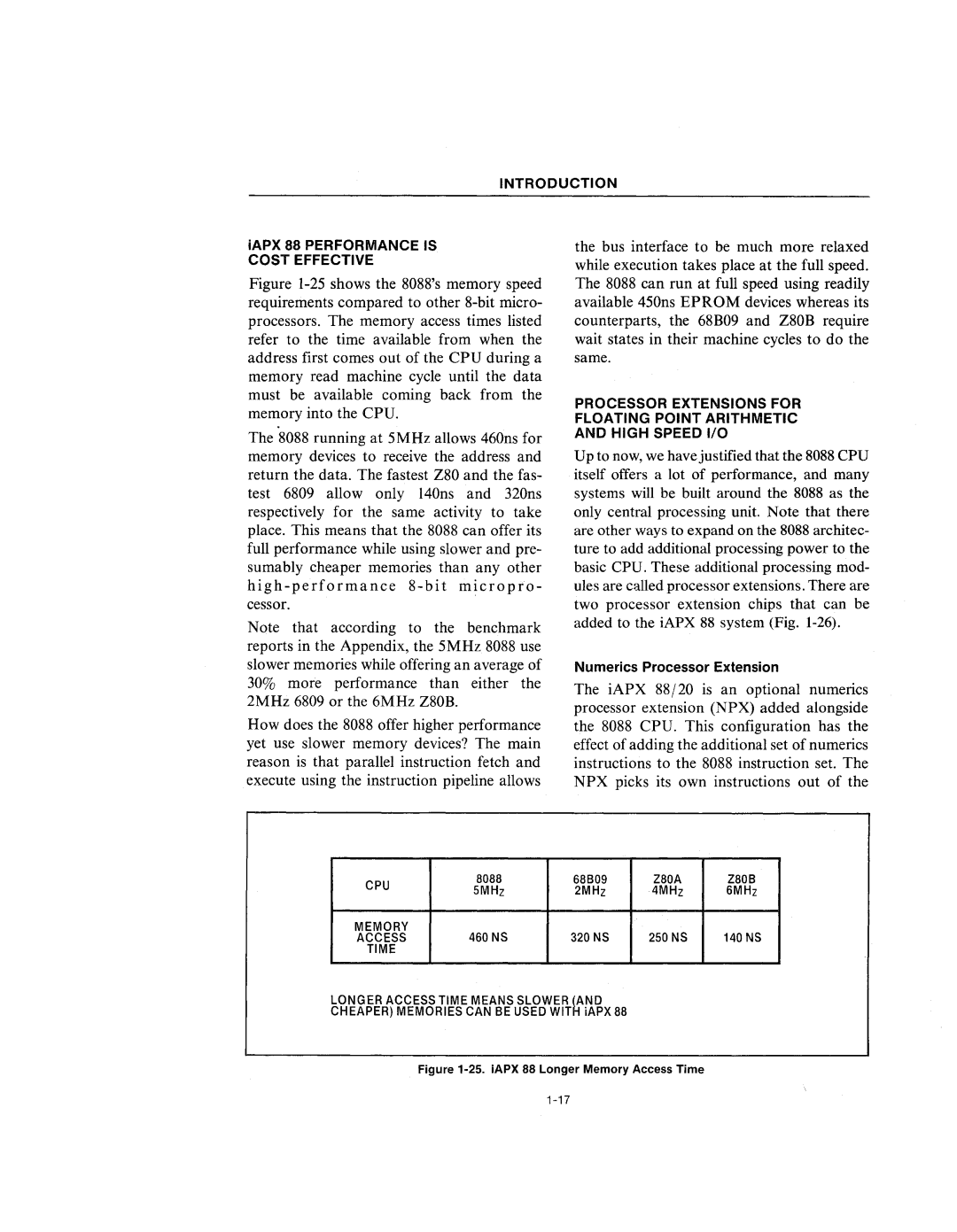
INTRODUCTION
iAPX 88 PERFORMANCE IS COST EFFECTIVE
Figure 1-25 shows the 8088's memory speed requirements compared to other 8-bit micro- processors. The memory access times listed refer to the time available from when the address first comes out of the CPU during a memory read machine cycle until the data must be available coming back from the memory into the CPU.
The 8088 running at 5MHz allows 460ns for memory devices to receive the address and return the data. The fastest Z80 and the fas- test 6809 allow only 140ns and 320ns respectively for the same activity to take place. This means that the 8088 can offer its full performance while using slower and pre- sumably cheaper memories than any other high-performance 8-bit micropro- cessor.
Note that according to the benchmark reports in the Appendix, the 5MHz 8088 use slower memories while offering an average of 30% more performance than either the 2MHz 6809 or the 6MHz Z80B.
How does the 8088 offer higher performance yet use slower memory devices? The main reason is that parallel instruction fetch and execute using the instruction pipeline allows
the bus interface to be much more relaxed while execution takes place at the full speed. The 8088 can run at full speed using readily available 450ns EPROM devices whereas its counterparts, the 68B09 and Z80B require wait states in their machine cycles to do the same.
PROCESSOR EXTENSIONS FOR FLOATING POINT ARITHMETIC AND HIGH SPEED I/O
Up to now, we have justified that the 8088 CPU itself offers a lot of performance, and many systems will be built around the 8088 as the only central processing unit. Note that there are other ways to expand on the 8088 architec- ture to add additional processing power to the basic CPU. These additional processing mod- ules are called processor extensions. There are two processor extension chips that can be added to the iAPX 88 system (Fig.
Numerics Processor Extension
The iAPX 88/20 is an optional numerics processor extension (NPX) added alongside the 8088 CPU. This configuration has the effect of adding the additional set of numerics instructions to the 8088 instruction set. The NPX picks its own instructions out of the
CPU | 8088 | 68B09 | Z80A | Z80B | |
5MHz | 2MHz | 4MHz | 6MHz | ||
| |||||
MEMORY | 460 NS | 320 NS | 250 NS | 140 NS | |
ACCESS | |||||
TIME |
|
|
|
|
LONGER ACCESS TIME MEANS SLOWER (AND
CHEAPER) MEMORIES CAN BE USED WITH iAPX 88
